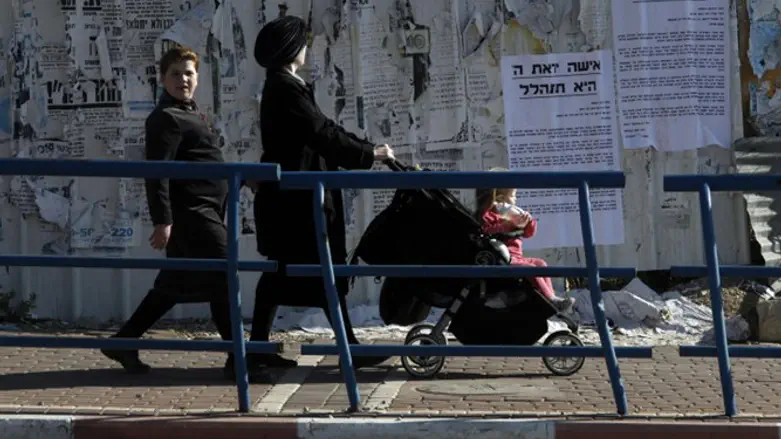
Israel's Supreme Court ordered the Beit Shemesh municipality to increase its efforts to nab haredi extremists flouting a law banning the hanging of so-called "modesty signs".
A small group of haredi radicals in Beit Shemesh have been involved in a long-running legal battle over 'modesty signs', which demand women not enter their neighborhoods in immodest attire. Beit Shemesh was first ordered to remove the signs in 2015, when the Supreme Court said that they "cause serious harm to human dignity, equality, personal choice, and autonomy."
In December, police forcibly removed the offending signs in several areas in both Beit Shemesh and Ramat Beit Shemesh Bet. However, extremists put the signs back up within an hour, in addition to spray painting "guidelines" on the sidewalk directing women to walk on separate sides of the street when approaching a synagogue or religious institution.
During a hearing on the issue on Sunday, the Supreme Court accused Beit Shemesh of not investing sufficient efforts in combating the phenomenon and ordered the municipality to install video cameras near the seven major flashpoints in order to enforce the courts directive banning modesty signs.
The court also threatened to place heavy fines on Beit Shemesh for every day that the signs were not taken down. In response, Beit Shemesh Mayor Moshe Abutbul requested that the Supreme Court remove the municipality from the issue, since several attempts to remove the signs have been made, but it is not feasible to remove them on a daily basis due to the exorbitant cost of bringing in riot police to contend with the inevitable riots.